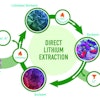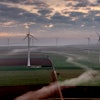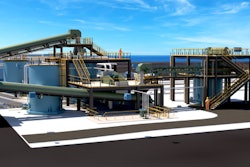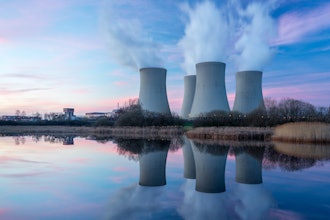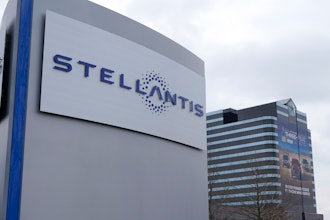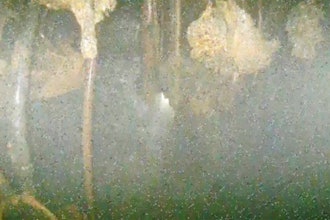PARIS (AP) — Suez SA and state-owned Gaz de France plan to form a global energy giant that they say will be better placed to compete against players such as Russia's OAO Gazprom.
The outlines of the new company, to be called GDF Suez after the deal is expected to be completed in 2008, was approved by Suez and GDF boards late Sunday after active brokering by President Nicolas Sarkozy.
With a combined market value of $123.3 billion and revenue of $98.7 billion, it will be one of the top three listed utilities worldwide, Gaz de France and Suez said Monday in a joint statement. The deal includes a spin-off of Suez' environment activities that have North American water interests and would leave the French state as the new company's largest shareholder with a 35 percent stake.
GDF Suez ''will play an essential role in the consolidation of the energy market in Europe,'' Suez CEO Gerard Mestrallet, who will head the new group, said in joint news conference Monday.
Gaz de France Chief Executive Jean-Francois Cirelli, who will become the new company's No. 2, spoke about ''strong growth prospects'' of the group, to be based in Paris.
The deal gives France a second global player in the politically sensitive energy market, along with Electricite de France, Europe's largest power generator. It comes at a time when Europe is seeking to lessen its dependence on Russian gas and to protect energy security.
The new company will be the second-largest electricity producer in France — and the largest gas importer and buyer in Europe — they say.
Jostling for a bigger share of the world's oil and gas resources is increasing as energy prices soar. Research by investment bank Goldman Sachs suggests four countries — Brazil, Russia, India and China, or the so-called BRIC countries — are grabbing the most market share.
The BRIC's share of the industry's market value has grown from virtually nothing 15 years ago to more than one-third today.
Moscow sent alarm bells ringing across Europe in 2006 when it cut off gas supplies to Ukraine in a price war, curtailing supplies to the European Union that were only reinstated after pressure from western Europe.
The French Finance Ministry noted in a statement that the deal ''will boost the energy supply security, notably in gas, of France and furthermore of Europe.''
Mestrallet will be chairman and chief executive of the new entity, while Cirelli will become vice chairman and president. The board will be composed of around 20 members, balanced between both companies, Mestrallet said.
Cirelli said representatives of the French state will occupy one-third of the seats on GDF Suez's board.
The new company will seek to grow its businesses outside of Europe, particularly in fast-growing markets, Mestrallet said.
GDF Suez will enjoy synergies of at least 1 billion euros (US$1.37 billion) per year by 2013.
The new entity will have an EBITDA — or earnings before interest taxes, depreciation and amortization — of more than 11 billion euros (US$15 billion), Mestrallet said.
With 35 percent of the combined entity, the French government will be the largest shareholder. Prime Minister Francois Fillon hailed the deal and said the state would ''keep control'' of the new group.
After earlier casting doubt on the combination, President Nicolas Sarkozy gave it new life last week. The project has been mired in political, legal and financial problems since it was arranged by the previous government 18 months ago.
Sarkozy had said as finance minister in 2004 not to privatize GDF. The government will reduce its stake from 79.8 percent.
French unions oppose the deal — both the original and updated versions — because it requires privatizing GDF.
Shareholders of both companies must approve the deal, and GDF and Suez said they had support from the major shareholders of both groups.
European Union competition authorities — who gave the green light to the original deal — will also be consulted on changes from the 2006 plans — as will the labor unions.
Critics outside France call the merger protectionist, since it was originally designed to fend off a hostile bid for Suez from Italy's Enel SpA.
As part of the deal, Suez will spin off its environment activities in an initial public offering.
Around 65 percent of Suez Environment — a major player in North American and other global water and waste markets — will be returned to Suez shareholders, allowing Suez and GDF to merge on the basis of a share exchange ratio of 21 GDF shares for 22 Suez shares.
After the deal, GDF Suez will hold 35 percent of Suez Environment, with another 12 percent held by a coalition of shareholders including banking giant Credit Agricole and state-run nuclear manufacturer Areva.
In the original deal, Suez agreed to be acquired by GDF in a one-for-one stock swap, including a 1 euro (US$1.36) special cash dividend paid to Suez holders if the deal went through. Since then, Suez' share value has risen steadily, turning shareholders off the merger.

